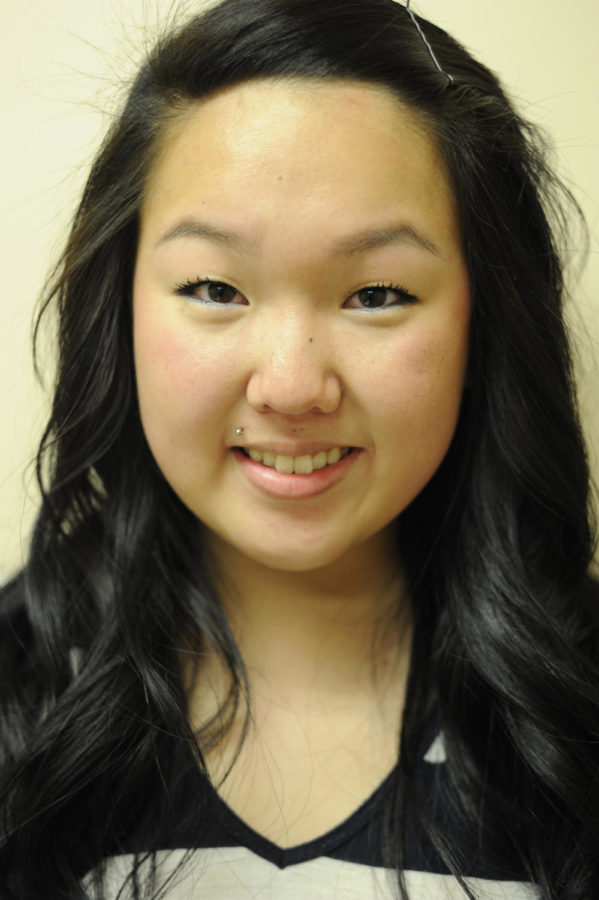Asian American Week: Student profile of Heidi Kang
Heidi Kang, sophomore in political science, was born in Seoul, South Korea, and moved to the United States with her family when she was 5. Kang is very proud of her culture and heritage, and she has grown up living two separate lives, one trying to fit in as an American and another as a Korean.
April 21, 2011
Iowa State is a mildly diverse campus. Sure, there are a lot of international kids, many students from Minnesota and Illinois. However, predominantly students come from middle-income white families from rural Iowa.
Students who do not match these characteristics often either go unnoticed, forgotten or unembraced for their differences.
Heidi Kang, sophomore in political science, is an Asian American student from Council Bluffs.
“We moved from Korea when I was about 5, to Los Angeles, and stayed with family,” Kang said.
The house was packed with about 13 total relatives and stayed with them until her parents could get on their feet in a brand new country.
A year later they moved away to Council Bluffs. The transition was difficult for Kang. Fitting into American culture and learning English was the hard part.
“It took me three years to learn English; my parents and I would practice having conversations at home in English so everyone could learn,” Kang said. “It was hard though. I didn’t look like the other kids, and there weren’t many Asians where I grew up.”
Kang still speaks fluent Korean and Japanese and still participates in Korean cultural practices with her family.
“We celebrate Korean New Years — which is very similar to the Chinese New Years — eat Korean food, have dead ancestor ceremonies and wear traditional dresses [called] ‘hanboks’ [for certain celebrations],” Kang said. “We also celebrate two birthdays: one by the lunar calendar and one regular one.”
Although Kang has had a relatively smooth transition from Korea to America, she said Iowa State has been challenging.
“I get mistaken for an international student all the time. I wish people wouldn’t judge Asians on campus so much,” Kang said. “Instead of trying to understand the background and culture of students, people just automatically think everyone is just from China; there are other Asian countries out there.”
Kang also said she wishes the multicultural groups had a more active presence on campus.
“I used to be really self-conscious about being Asian in a predominantly white community, and I used to be embarrassed about it,” Kang said.
Kang said now she is proud of her Korean heritage and embraces her culture.
“I started embracing it more when I got to college, but I wish people would stop judging based on stereotypes,” Kang said. “And I wish people would realize not many people get the chance to come to America.”
“Students can offer a hand to those visiting here instead of judging them, and it would make their experience that much better.”
There is little Asian American presence on campus, Kang said; even with the Asian Pacific American Awareness week, there still isn’t a noticeable involvement or population on campus.
“I’m proud that we have a whole week here dedicated to us, and a whole month nationally [in May]. But I feel like people don’t really know about it or care,” Kang said. “It’s not every day you get a whole week dedicated to your culture. We should be proud.”
Kang feels disconnected from the Asian community on campus, and said it’s a struggle being a minority on campus.
“Trying to fit in with the majority of students on campus is hard, and then at the same time being aware and proud of where I’ve come from is important,” Kang said.
Kang said the disconnection can be fixed by students if they embrace their heritage. This way more people will come out about their culture and people will want to know more about each other instead of just judging based on stereotypes.

















